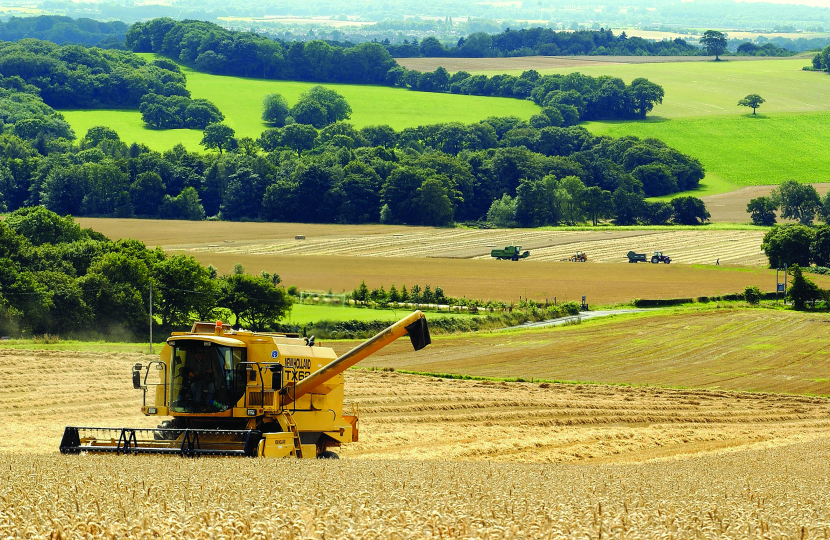
Agricultural land and machinery have been exempted from inheritance tax rules for decades. The exemption from inheritance tax indirectly acknowledges that farming doesn't deliver a profit and either needs government subsidies or a dramatic increase in food prices. As a country, we have always chosen the former, then risk the latter. Recent research has found that 75% of commercial family farms will be above the £1m threshold for the new inheritance tax, rather than the 27% estimated by the Labour government. A quick search of mine revealed that only six out of the 18 farms (33%) currently for sale in Staffordshire are below the £1m mark, which is before machinery costs.
The tax will mark the end of family farms. Families who have farmed the same land for generations will have to sell, whilst the hedge fund managers and billionaires who bought agricultural land as tax heaven will still not pay anywhere near the levels, if any, of the inheritance tax faced by farming families. Why? Suppose you are a successful hedge fund manager or billionaire; you will have employed the best accountants to advise you on the best ways to get around the planned taxes. It has, and will always be, the same.
Only the ignorant and the Labour Party fail to understand that farming doesn't deliver a profit. Therefore, government support is needed. Ironically, we are witnessing a Labour government withdrawing state subsidies from an industry needing support.
So what will happen when these family farms go out of business and sell up? Who will replace them? Large corporations. Corporations which own the means of production, the supply of the products, and the retail sale to the consumer.
These aren't some far-fetched, bleak future predictions. It has been happening for decades. The Co-op and Morrisons both own substantial land holdings and farms. Tesco owns several local shop brands, and they now even own wholesalers who provide stock to the few independent corner shops still around.
What is happening is not capitalism. This absence of choice and competition, where a few sole entities own the entire process, and we are at their mercy to their prices and products, is a form of Corporate Communism. Of course, the remaining state subsidy for farms will go to these multi-million and billion-pound companies, helping boost their profits for the hedge funds and venture capitalists with a stake in them.
The decision on this tax is part of Labour's plan to build on the countryside. The large corporations who end up owning the farms may prefer to sell the land to a developer and move food production offshore. Farmers may decide it’s easier to sell up now to a developer, than pay a tax bill later.
The 1920s and 1930s saw the British state change policies towards the countryside, including inheritance tax on great estates (formally known as death duties) imposed after the Great War. Home market food production fell to its lowest levels ever recorded. The Second World War saw this country at the mercy of the German U-boats, which cut off our food supplies from the rest of the world. The blockage led to almost starvation and rationing, which continued until 1954. It took nine years for the food supply to recover after the war ended, due to disastrous government policies made twenty years earlier.
Labour's family farm tax will lead to families selling up to large corporations, more offshoring of our food production and may even end in ration books or apps issued as the world again turns towards conflict. Only the ignorant believe this is a tax on 'millionaires.' Labour's decision puts our food security at risk, and that is something no government should be allowed to do.





